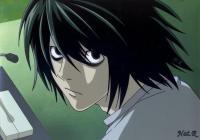quote:
Original post by BiggerStaffquote:
Original post by Siolis
We''ve already covered this, the fact is that you cant have a real time, turn based, rpg battle system.
I''d argue that Baldur''s Gate is pretty close - it''s in realtime, but there are turns, and if you''ve got a ''quicker'' weapon you can attack more often than with a ''slow'' weapon. For a turn-based battle system, fights feel pretty realistic.quote:
Original post by Siolis
I do agree that exp systems dint often make sense, why can you slice though 100 zombies and then suddenly be better at lock picking, that doesn''t make sence...in real life. This is a computer game, it cant be 100% real, as ive already said, if all computer games were 100% real then we wouldn''t have any first person shooter or a number of other games including tetris btw.
Well there''s a key difference there, and that is the lack of logic. No, Tetris isn''t realistic in the sense that it doesn''t represent the real world, but it is entirely consistent within its own logic. However, a system where killing zombies makes you better at picking locks is irritating because it doesn''t fit with its own logic. Or anyone''s, for that matter
I''m designing a game final fantasy style, do you relies how ridicules it would look if it was done bulders gate combat style. Also as the above poster said, heritage comes into play with such games like FF plus they are not the only ones ever to use that system.
Ok so maybe the logic is inconsistent but its not like i agree with it, in my game skills like steal will be getting better with use, not with EXP levels. Same with magic too, it will get better depending on the MEXP it gets from usage, ditto with special skill crystals which will get SEXP which again will be gained from use.
RPG: I''m going to rewrite this genera even if it kills me.







